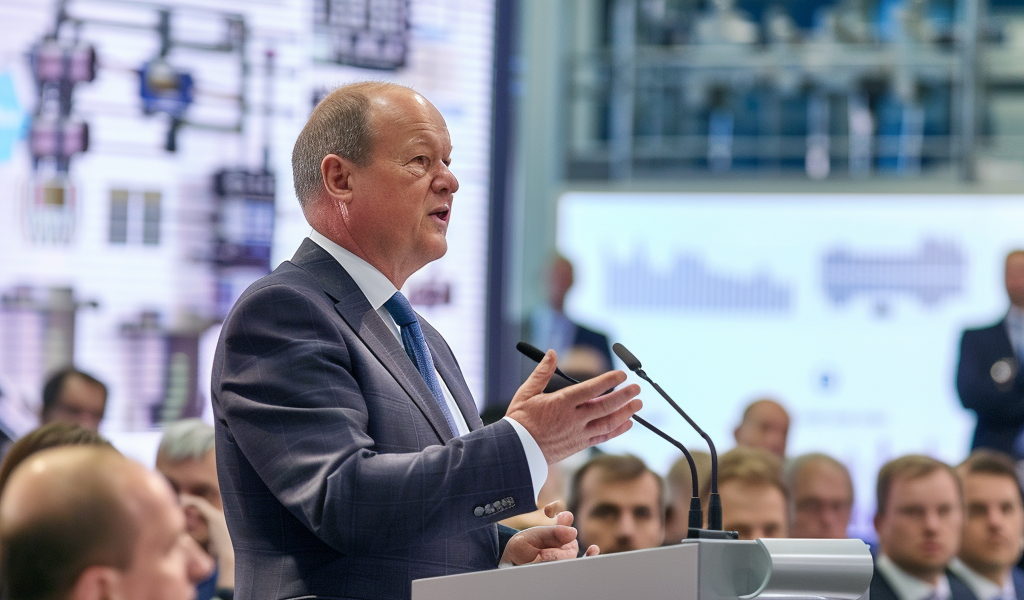In a recent address at a steel summit, German Chancellor Olaf Scholz emphasized the importance of adopting a pragmatic approach to the integration of clean hydrogen in the steelmaking process. Scholz’s remarks came during discussions with industry leaders and trade union representatives, highlighting the critical role of the steel sector in Germany’s economy.
Scholz articulated that the German steel industry is not only vital for economic growth but also serves as a significant employer, providing numerous high-quality jobs. He noted that the steel produced in Germany holds considerable geostrategic significance for the country’s industrial production, which is essential for maintaining a competitive edge in the global market.
As part of Germany’s broader strategy to decarbonize its industries, the government is focusing on the production of direct-reduced iron (DRI) using clean hydrogen. This method is seen as a crucial step towards reducing carbon emissions associated with traditional steelmaking processes. The Chancellor’s commitment to pragmatism suggests a willingness to explore practical solutions that balance environmental goals with economic realities.
However, this approach has drawn attention from environmental advocacy groups, such as SteelWatch, which are urging the German government and major steel manufacturers like Thyssenkrupp to remain steadfast in their commitment to decarbonization. SteelWatch emphasizes the need for a clear and ambitious roadmap to ensure that the transition to cleaner production methods does not falter.
The ongoing dialogue between the government and industry stakeholders underscores the complexities involved in transitioning to sustainable practices within the steel sector. While the push for clean hydrogen is seen as a promising avenue for reducing emissions, the implementation of such technologies requires significant investment and innovation.
Germany’s commitment to clean hydrogen is part of a larger European initiative aimed at achieving climate neutrality by 2050. The steel industry, being one of the largest industrial sources of carbon emissions, is under pressure to adopt cleaner technologies. The integration of hydrogen in steel production processes is viewed as a pivotal element in meeting these ambitious climate targets.
At the summit, Scholz reiterated that the government would support the steel industry in its transition towards more sustainable practices. This includes fostering research and development in clean technologies and facilitating partnerships between the public and private sectors to drive innovation.
As Germany navigates this critical juncture, the balance between economic viability and environmental responsibility remains a focal point of discussion. The government’s pragmatic stance on hydrogen use in steelmaking reflects an understanding of the need for a realistic approach that considers the industry’s unique challenges and the broader economic implications.
As the dialogue continues, stakeholders from various sectors will be closely monitoring the developments in Germany’s steel industry, particularly regarding the implementation of clean hydrogen technologies. The outcomes of these discussions will have far-reaching implications not only for Germany but also for the global steel market as it grapples with the urgent need for decarbonization.
In summary, the German government’s commitment to a pragmatic approach in the use of clean hydrogen for steelmaking highlights the intricate balance between fostering economic growth and achieving environmental sustainability. As the industry moves forward, the collaborative efforts between government, industry leaders, and advocacy groups will be crucial in shaping the future of steel production in Germany.





